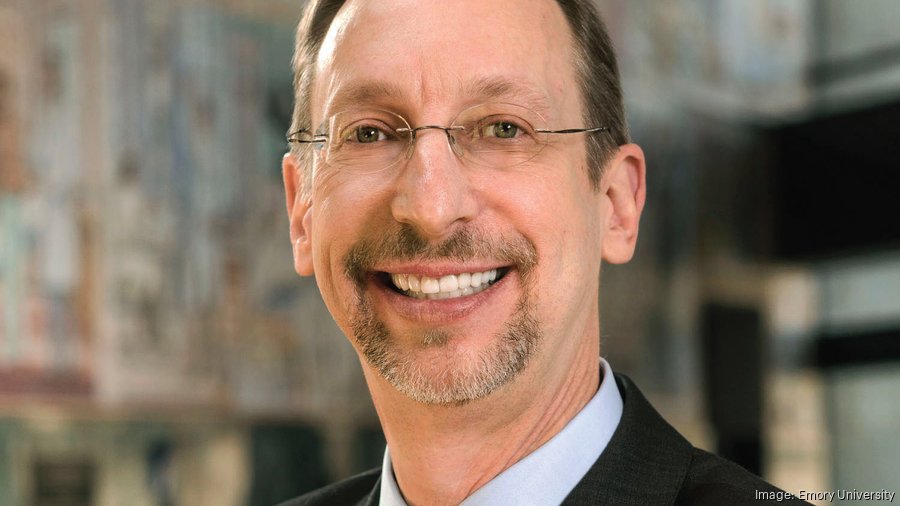Atlanta Business Chronicle just named our list of Atlanta’s Most Admired CEOs of 2020. They will be honored on Dec. 10 at a virtual awards event. Here’s a Q&A with one of the honorees, Dr. Jonathan S. Lewin, CEO of Emory Healthcare.
Q: What can other CEOs do to win such great admiration from their stakeholders?
A: Understand that people don’t serve their leaders; leaders serve their people. Engage and empower every member of your team. Listening to and respecting everyone’s opinions fosters collaboration and trust, builds team members’ capacity for success, and helps your people develop their own leadership potential.
Q: What are the keys to CEOs building a high level of trust in their organizations?
A: Treat every team member with respect and fairness. It’s crucial to show and sow encouragement and compassion. Simple actions such as acknowledging people’s contributions can help create a culture of celebration and spread optimism, hope, and clarity.
Actively engage in diversity and inclusion efforts. Leaders should demonstrate through their actions why equal representation is important, connect it to business outcomes, and model it as a personal and institutional value, while also taking the time to study and reflect on histories and cultures other than our own, listen to our colleagues and friends of many cultures, and learn more about how we can personally grow and change to best contribute to the development of a truly equitable organization.
Q: What does leadership and being a leader mean to you?
A: Being a leader means that you are responsible for illuminating the path forward. It’s your job to consider the team’s ideas and work with them to articulate a shared vision that is clear and inspiring. Then develop the constructive culture and aligned organizational architecture that give people the tools they need to achieve it. Most importantly, leaders have to live the vision we articulate. Be prepared to walk the talk!
Q: Who is a favorite leader you admire, and why?
A: Winston Churchill has long been one of my favorite leaders. His ability to inspire, spread optimism, and communicate with unparalleled clarity and humor have rarely if ever been equaled.
Q: Please explain how you and your organization make tough decisions.
A: We approach tough decisions from a place of strength by ensuring our physicians and staff are empowered, supported, and equipped with the tools they need to move us forward. With this empowerment as our foundation, we tackle tough decisions together by engaging stakeholders from all operating units, assessing evidence and data, and weighing the implications for the institution, its people, and the people we serve.
Q: Please give some details about one of your top accomplishments of the past year that you are most proud of.
A: One of the most important things I’ve learned as a leader in 2020 is the importance of having a strong common core purpose, true north, and strategic plan in place. When Emory Healthcare implemented its strategic plan two years ago, we couldn’t have predicted how crucial it would become – or how soon. Many elements of our five-year plan – including investments in telehealth, systemness, a lean operating system, and clinical research – have been critical to facing the challenges of 2020 and have led to the rapid acceleration of our organizational learning and adaptability.
The most important element of our strategic plan, of course, is its concentration not only on our patients, but also on our people. We’re committed to making sure our physicians and staff are empowered, supported, and equipped with the tools they need to move us forward. After all, the best way to care for our patients is to care for their caregivers.
Two years ago, we pushed for investment in these and other areas of our strategic plan. We knew they would allow us to be more nimble and to lead positive change for our health system and the people we serve. What COVID-19 has taught me as a leader is that the same strategies we developed for moving forward in good times – especially strong support for our extraordinary team – are equally powerful at helping us adapt to tough times. Our positive COVID-19 outcomes, including strong ventilator survival rates, PPE stock, clinical research breakthroughs, and more are the returns on these investments.
Q: How is your organization changing or adapting to prepare for the future?
A: The COVID-19 pandemic has taught us much about what really matters moving forward. While we continue to adapt and prepare for ongoing surges/resurgences and to re-engineer our operations for a world with COVID-19, many of foundational values underpin our efforts, including continuing to earn our patients’ confidence, collaborating with our peer health systems and local and state government, leveraging the goodwill and support of our community, and always focusing on our people.
Q: What top piece of advice would you share with other CEOs?
A: I’d share a favorite quote of mine from Mark Twain: “It ain't what you don't know that gets you into trouble. It’s what you know for sure that just ain’t so.”
Accept that there are many things you don’t know; admit when you’re wrong; and be prepared to listen, learn, grow, and change.


